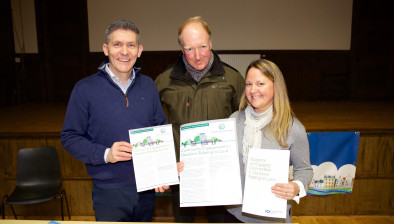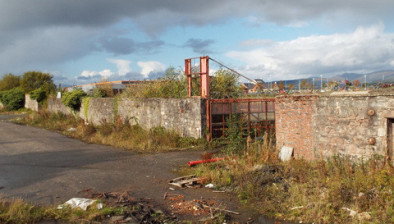State must lead on major affordable housing development, argues new paper
 Big civic projects such as building affordable homes at a scale similar to the construction projects seen post WW2 must be led by the public sector, according to a new discussion paper.
Big civic projects such as building affordable homes at a scale similar to the construction projects seen post WW2 must be led by the public sector, according to a new discussion paper.
Commissioned to open up discussion about making more of Scotland’s land, The Delivery of Public Interest Led Development in Scotland is the second in a series of independent discussion papers from the Scottish Land Commission.
The paper raises a number of important questions looking at how the state can act as the ‘Prime Mover’ and take a lead in public interest led development to deliver major civic projects. Its authors discuss how this can then bring “clarity, purpose and…intent” but there must also be acceptance of some risk and uncertainty.
Authored by Steven Tolson, an academic and housing expert and former chair of the Royal Institution of Chartered Surveyors in Scotland and Archie Rintoul, also a former chair of RICS and former Chief Valuer Scotland, the paper considers a number of delivery approaches adopted by public bodies to achieve public interest policy objectives.
The paper states: “Who is responsible for delivering housing is essentially a political choice between municipal or market driven production. Certainly, more houses have been built using focused municipal programmes than through market mechanisms,” discuss the authors, highlighting the fact that the positive development of land seen after WWII, has now become a reactive function.
“There are many gaps in this approach, which needs the involvement of the state. To fix those gaps the public sector should be seeking to use its covenant strength to raise funds, utilise its assets and capture enhanced development value to provide a greater role and investment in project delivery.”
The paper explores a number of ideas including:
The paper’s authors conclude that while “the public sector can’t do everything needs to establish development frameworks and champion wider participation from large and smaller organisations. Successful public interest led development needs a commitment to doing things differently, a need to be radical and take some risks in order to achieve the goal of achieving places that people deserve”.
The paper forms part of Land Lines, a series of independent discussion papers on key land reform issues, designed to stimulate public debate and inform the Commission’s work.
Chair Andrew Thin, said the Commission would welcome views on the paper and added: “Land for housing and development is a key priority area of work for us and this paper poses a number of important questions for the public sector and development industry in Scotland in how we could be making more of our land.
“We are continuing the discussion at our Public Interest Led Development conference to be held on 25 April 2018 in Glasgow. Planners, developers and investors from both the private and public sector are encouraged to attend the event which will explore how Scotland can deliver public interest led development by looking at case studies where it has happened and the tools and mechanisms to do it.”









